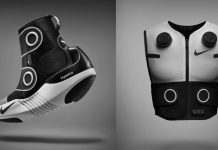Jeff Bezos is well known for his willingness to take risk and make bold bets on new endeavors. He once stated that he has lost billions of dollars trying out new ideas or acquiring companies. With those risks, however, comes much deliberation and calculation of possible outcomes. And with healthcare, Amazon is playing it particularly smart by sponsoring and teaming up with targeted healthcare players to put its technology to use. Recently, the ecommerce behemoth announced it is partnering with PHDA (The Pittsburgh Health Data Alliance) to integrate machine learning capabilities in various areas of biological and medical science.
What’s smart about the move is that Amazon gets to deploy, test and improve its capabilities in healthcare with some of the most advanced institutions in the country who also have a keen vested interest in the outcomes of its experiments. The PHDA is comprised of Carnegie Mellon University, the University of Pittsburgh Medical Center and the University of Pittsburgh. Across these three institutions, they are examining the origin of tumor cells and how those cells will change and grow in the future, how surgical interventions may effect abdominal aortic aneurysms, how to reduce medical diagnostic errors and other data intensive areas of study.
Zariel Johnson, program manager at UPMC Enterprises, the innovation and commercialization arm of UPMC commented, “The goal is to develop innovative, data-driven solutions that will improve healthcare. The PHDA provides funding for compelling research projects at the universities and additional support to develop these technologies to power commercial products and services,” further adding “Many of the most exciting and innovative projects require that research teams build, train, and test machine learning models and otherwise manipulate large, complex data sets. Through this sponsorship with AWS, teams will have access to flexible cloud computing resources and machine learning tools that they can use to accelerate their investigations and scale to meet future needs.”
Notably, AWS gets to see its technology in action across several important projects, “Among eight projects that AWS will support, three are developing new technologies to enhance the prognostic and diagnostic capabilities of medical imaging. In all three cases the research teams need to manipulate multimodal data sets, rigorously test their algorithms, and make iterative improvements as new data are incorporated. The AWS tools and environments offer a means to do this quickly and efficiently. Other projects that will benefit from the support provided by AWS are developing tools to advance precision medicine for cancer, identify new biomarkers for mental health assessment, and improve the process of diagnostic coding.”























